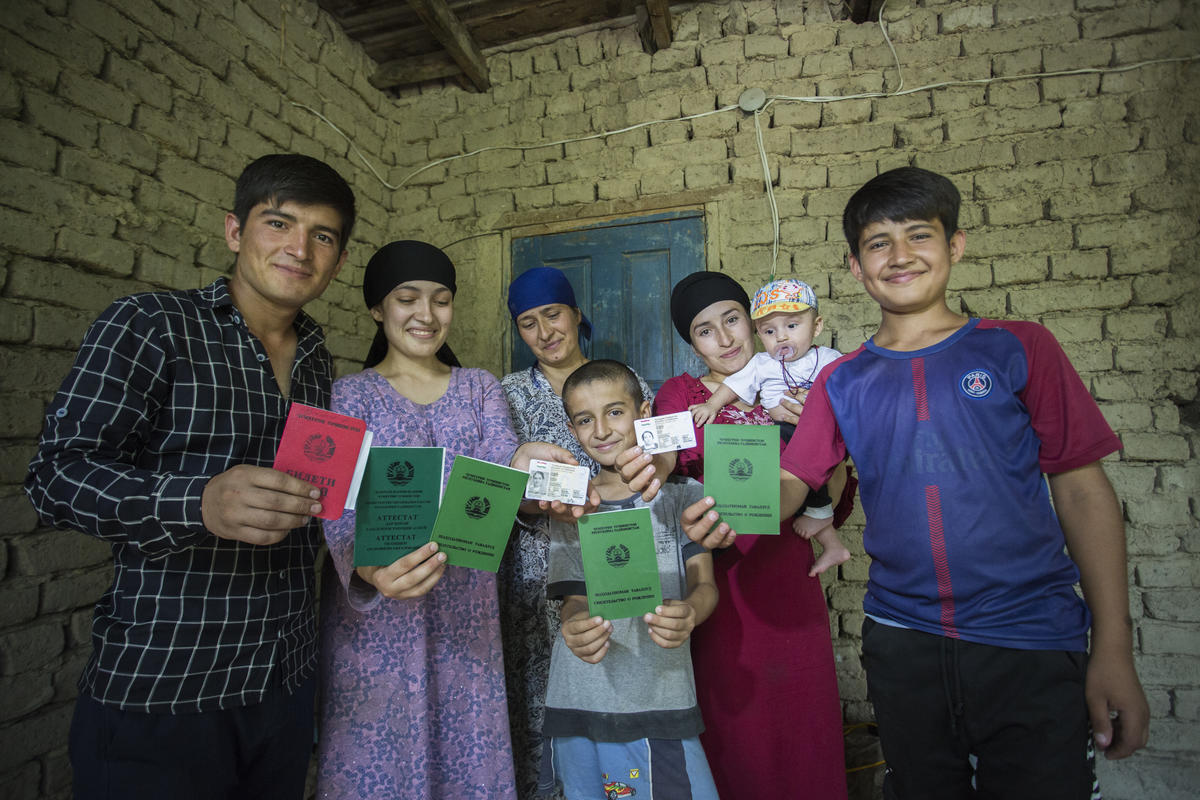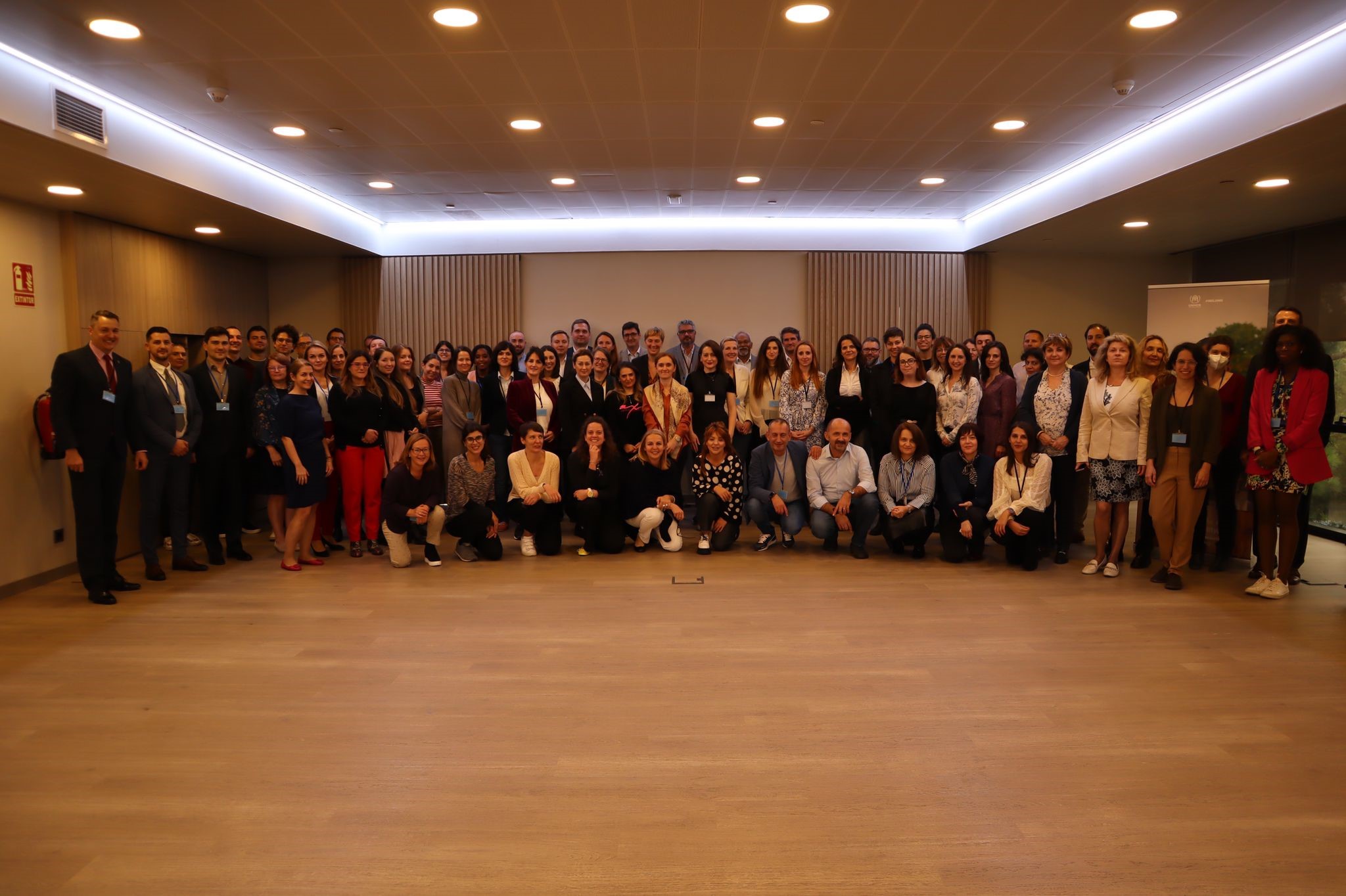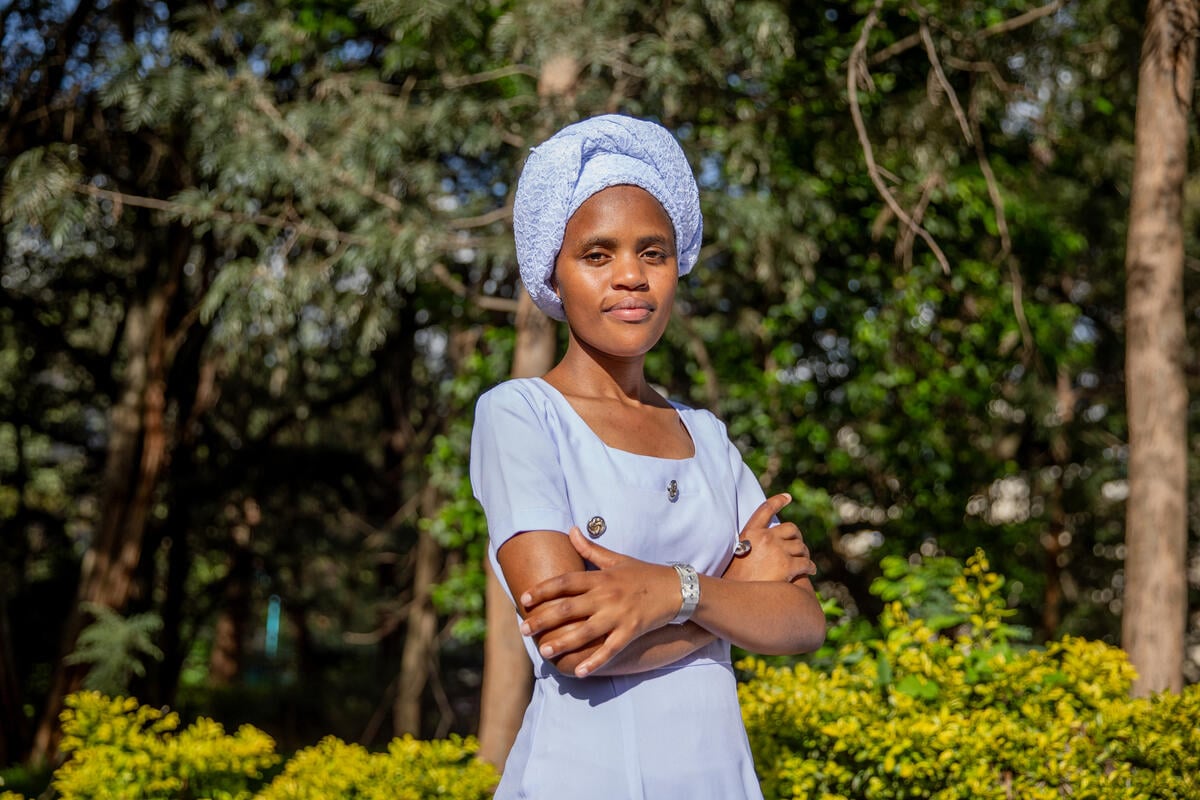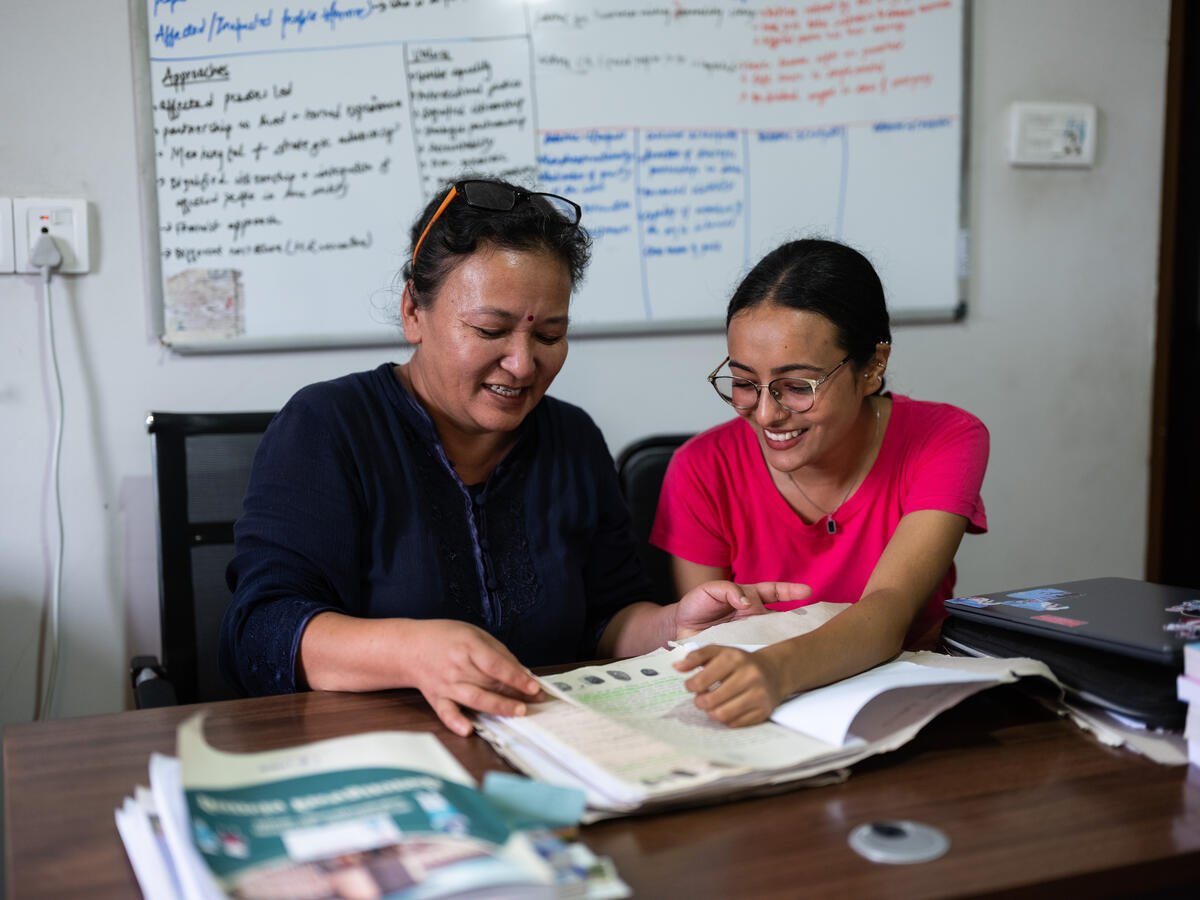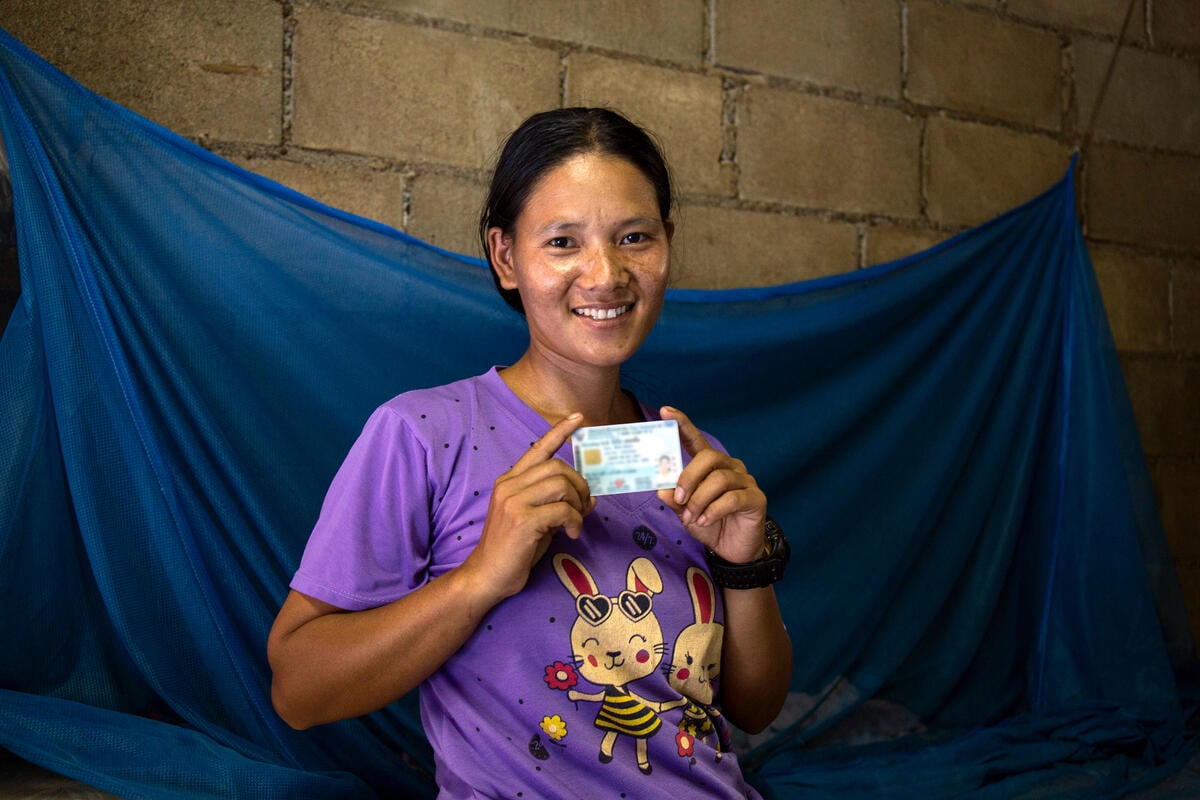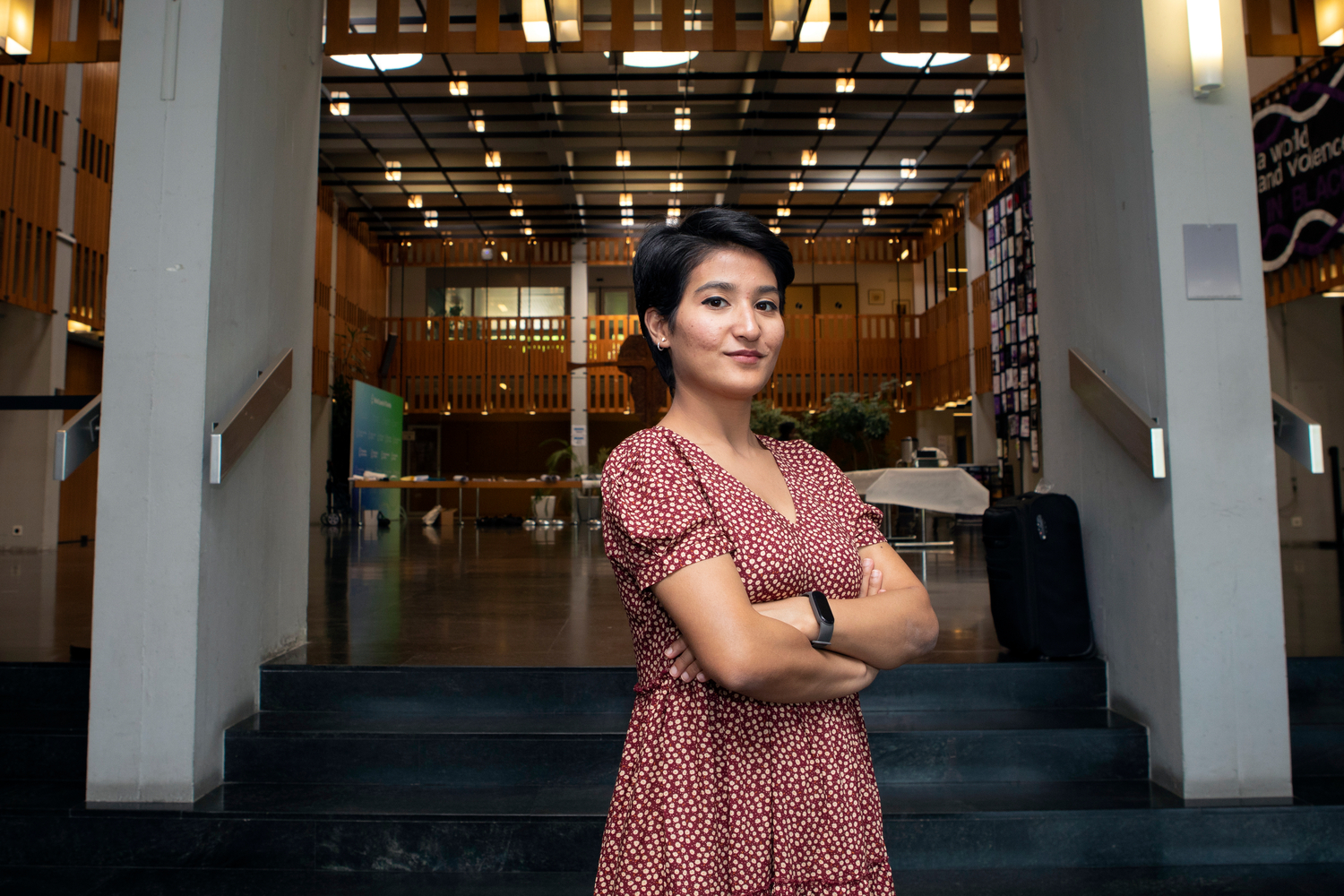International Women's Day: Unequal treatment puts women at risk of statelessness
International Women's Day: Unequal treatment puts women at risk of statelessness

GENEVA, March 8 (UNHCR) - The UN refugee agency marked International Women's Day on Thursday with a warning that unequal treatment of women could create statelessness in more than two dozen countries.
A press statement released in Geneva said that a new UNHCR survey had found that unequal treatment of women in nationality laws affects people in most continents. It said at least 25 countries maintain nationality laws that do not allow women to confer nationality on their children.
"A child born stateless today faces a future of uncertainty and insecurity," said UNHCR's Assistant High Commissioner for Protection Erika Feller. "When there is discrimination in conferring nationality, we see children becoming stateless from the moment they are born."
The UNHCR press release said most of the countries that deny mothers the right to confer nationality are found in the Middle East and North Africa (12 states) and sub-Saharan Africa (nine), with the remainder in Asia (four) and the Americas (two).
"Children become stateless in these countries because, in some instances, they can neither acquire the nationality of their mother nor of their father. This can happen, for example, if the father is himself stateless, or if laws fail to grant nationality to children born outside the country of their father," the statement said.
In addition, some children fall into a bureaucratic quagmire when a father dies or abandons them, leaving them without documentation to confirm their nationality.
According to the survey, states are showing growing willingness to take action to remedy gender inequality in citizenship laws. Reform has been undertaken in recent years in Algeria, Bangladesh, Egypt, Indonesia, Iraq, Kenya, Monaco, Morocco, Sri Lanka, Tunisia and Zimbabwe. All have amended their laws to grant women equal rights as men to pass on their nationality. UNHCR is working with a number of other countries to make further reforms.
"Gender discrimination was once pervasive around the world," said Feller. "We have now seen a broad trend to reform nationality laws to address this cause of statelessness."
Up to 12 million people around the world are estimated to be stateless, meaning they are not considered as nationals of any state. Up to half are children. Stateless people are some of the most marginalized and destitute in the world; they are often invisible populations that are difficult to count.
UN High Commissioner for Refugees António Guterres, meanwhile, noted efforts by the refugee agency over the past year to promote the advancement of women and gender equality.
"Dialogue is an important aspect of UNHCR's participatory approach to the protection of our persons of concern," he said in a message to staff marking International Women's Day. "This is especially critical when engaging with women and girls, who are disproportionately affected by sexual and gender-based violence and harmful stereotypes, all too often exacerbated by a lack of legal status," he added.
Guterres said these particular vulnerabilities were highlighted during a series of regional dialogues held last year in seven countries with forcibly displaced women and girls. "The protection recommendations we received from the over 1,000 participants in these dialogues have recently been published in book form," the High Commissioner announced. The publication is entitled "Survivors, Protectors, Providers: Refugee Women Speak Out."
He also noted that gender inequalities in nationality laws, aside from disempowering women, can also create statelessness. "This creates a cycle of marginalization, with tens of thousands of children unable to access education and health care or develop an identity as part of society."
Guterres said UNHCR was marking International Women's Day with the release of a media package aimed at promoting gender equality in nationality laws to prevent statelessness from arising.
Women's Day Book Launch: Displaced women and girls share their experiences and propose solutions.


